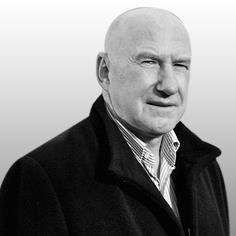Smart technologies could allow us to turn cities such as London into more healthy and less frustrating places to live. One Asian state has an app for that

‘Disruptive” is the word of the moment. “Disruptive” apps, technology and inventions create or destroy industries overnight: Uber, Airbnb, 3D printing, camera phones, autonomous cars, Google Maps – Google everything, in fact. The Google mantra is change by 10x not 10%.
And then we have urbanisation. Fifty per cent of humanity already lives in cities and at current rates 75% will live in cities by 2030. “Smart cities” are thought to be the “disruptive” answer. I have been trying to figure out exactly what they are and if there are technologies that will make a 10x difference to the cities of the future (particularly my city, London) and how we live in them.
It’s not easy to get an agreed definition of what a smart city is or could be. At its simplest a smart city seems to be one which uses sustainable energy, technology and data to maximise the efficient use of civic and personal assets to allow us to live a better, healthier, more enjoyable life in a city. It is easy to think of some simplistic examples of how this might work. There is no point sitting at red traffic lights (assuming you are allowed to drive in these cities) while there is no traffic coming the other way, or waiting for a bus that’s not coming, or is full anyway. These are sensible and potentially transformative ideas. But what is happening for real?
There have been some great exemplar projects. Back in 2011 my firm won the competition, with Wilkinson Eyre, to design the Siemens Crystal, which was a demonstration project for the then mayor of London Boris Johnson, showcasing Siemens’ sustainable and smart technologies, focusing on the development of cities. It’s a tour de force with photovoltaics on the roof, more thermal piles than you can shake a stick at and it cleans and recycles both its grey and black water. So that’s one great building – but what about the rest of the city?
The Smart London Board set out quite a wish list but four years later I’m not sure I really see any traction on it
In 2013 the Smart London Board was formed, which then published the Smart London Plan, an optimistic, forward-looking document in which Boris anticipated London expanding by one million by 2021 and continuing up to a population of 10 million by 2030. This, the then mayor said, would create 640,000 jobs, 800,000 homes and 600,000 commuter journeys.
The Smart London Plan sets out a lot of targets: getting people engaged in technology, making data accessible, forming the London Data Store and digital dashboard, investing in SMEs, a smart innovation network, smart grid services, digital asset mapping, monetising efficiencies (no I don’t know what that means either) and state-of-the-art broadband and wireless services. That’s quite a wish list but four years later I’m not sure I really see any traction on it – for example, our internet is not even where South Korea’s was 10 years ago. But have a look at data.london.gov.uk and see what you think.
By contrast, Singapore not only wants to be a smart city, it wants to be a smart nation. It has the great advantage of having a single layer of government so it can make plans and get things done. It has this mission statement:
“A Smart Nation is one where people are empowered by technology to lead meaningful and fulfilled lives. A Smart Nation harnesses the power of networks, data and info-comm technologies to improve living, create economic opportunity and build a closer community.
A Smart Nation is built not by government, but by all of us – citizens, companies, agencies.”
The NHS still works on paper records and to get hold of your own would involve a Kafkaesque process. In Singapore, it’s on your smartphone!
Singapore has built a dozen or more apps to help its citizens use civic assets more efficiently and more enjoyably. “Beeline” helps you use transport services efficiently, for example, telling you when the bus will come and if it’s full. “Healthhub” gives you “Personalised health records at your fingertips! Access yours and your children’s health records at your fingertips through this one-stop portal.” This is truly remarkable. The NHS still works on paper records and to get hold of your own personal records would involve a Kafkaesque process that I would not like to embark on. In Singapore, it’s on your smartphone! “My Responder” app sends out an alert if you have an emergency like a cardiac arrest and any nearby qualified paramedic or medic can find you and treat you within minutes. “NLB Mobile” allows citizens to borrow books and download e books from public libraries. “OneInBox” (I love this one) delivers all government and official letters and correspondence to you on your smart phone. And so on: there are apps to allow you to report issues, to help in biodiversity, for personal security and to access all government statistics.
Singapore’s strategic clarity in forming its vision of a smart nation supported by its pragmatic execution is an object lesson for us. Brexit or no Brexit, London is an expanding world city sitting on historic fabric. We need everyday smart solutions to make it work.
Jack Pringle is principal, managing director EMEA at Perkins+Will




























1 Readers' comment